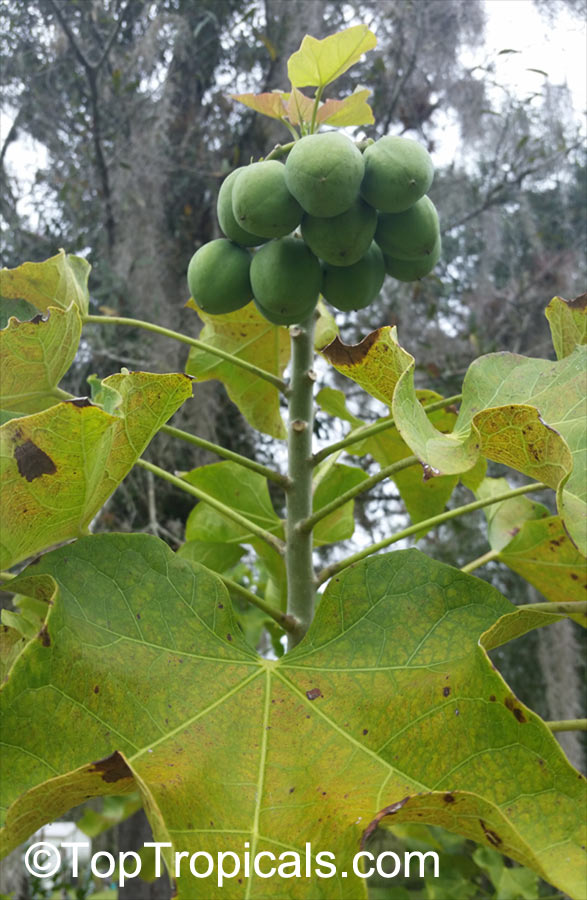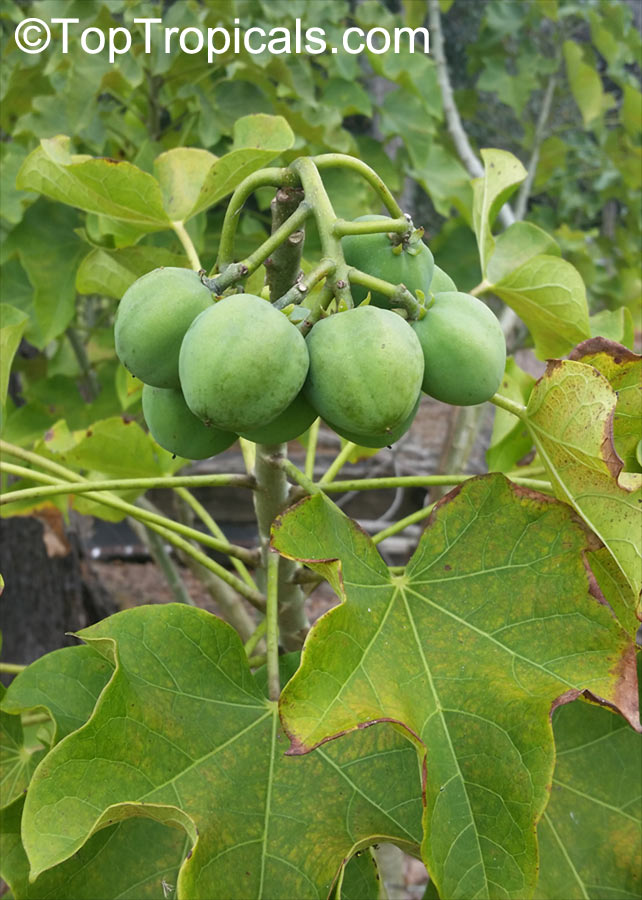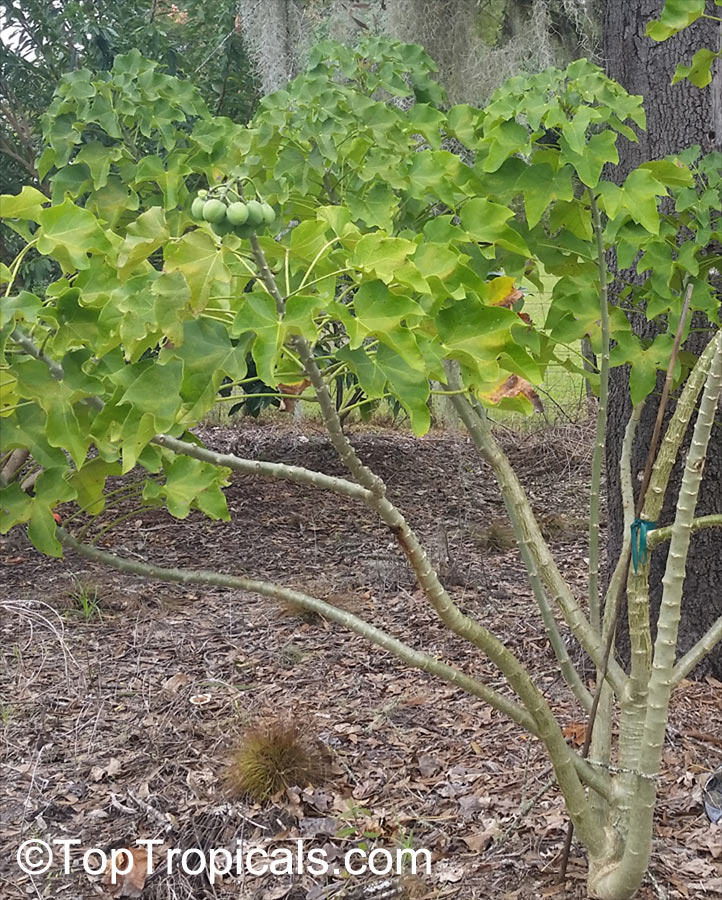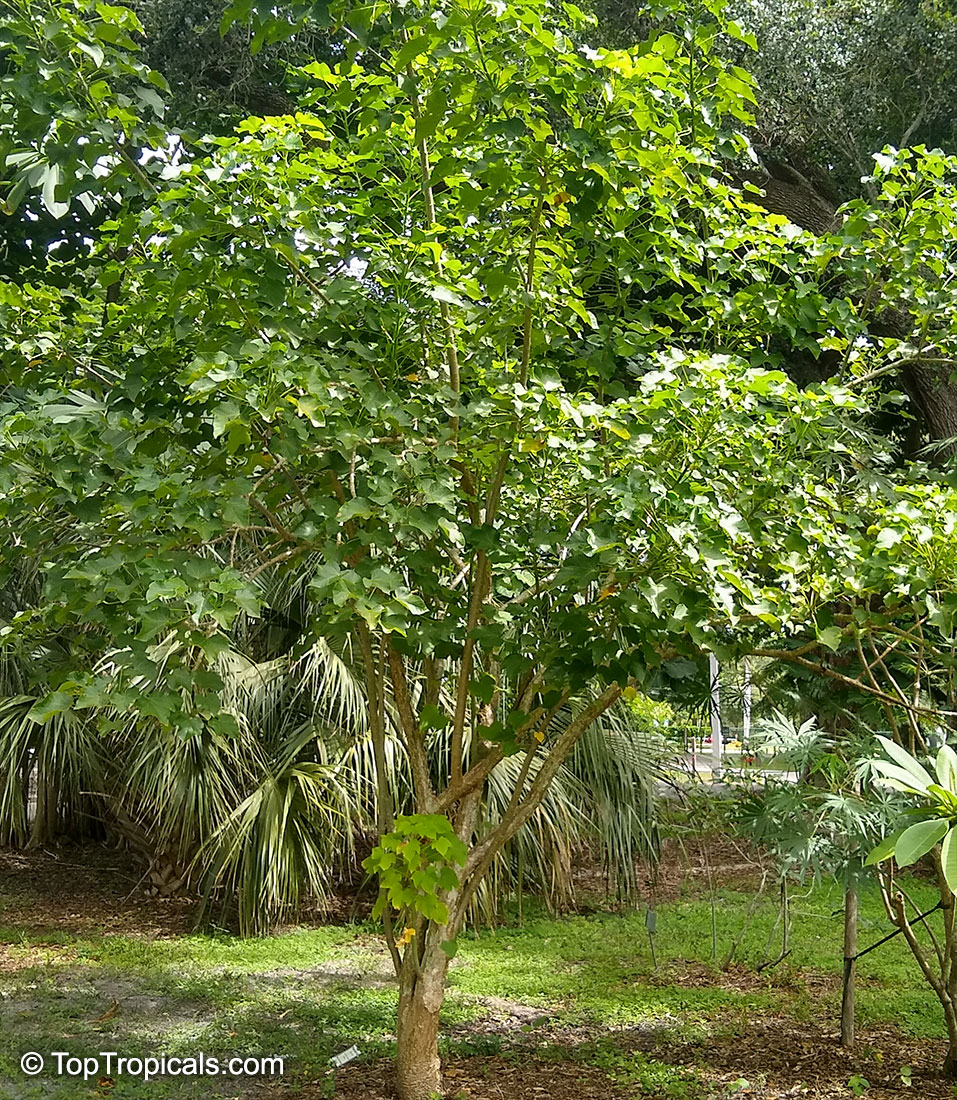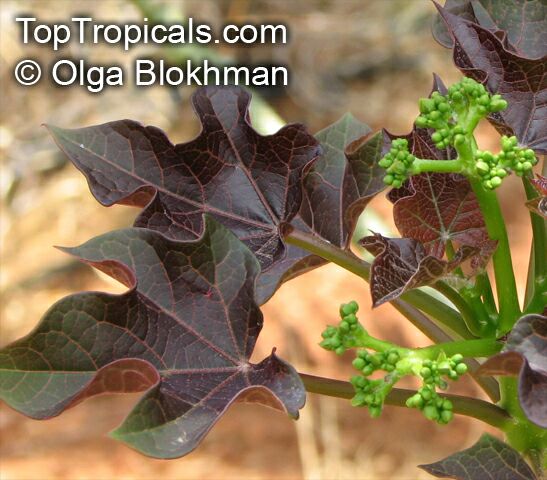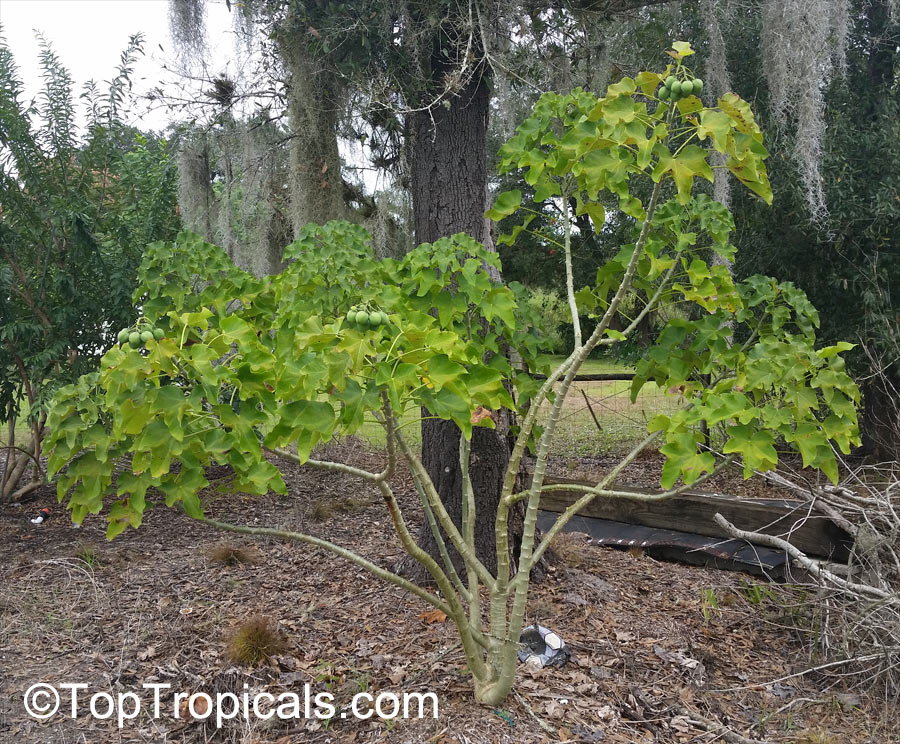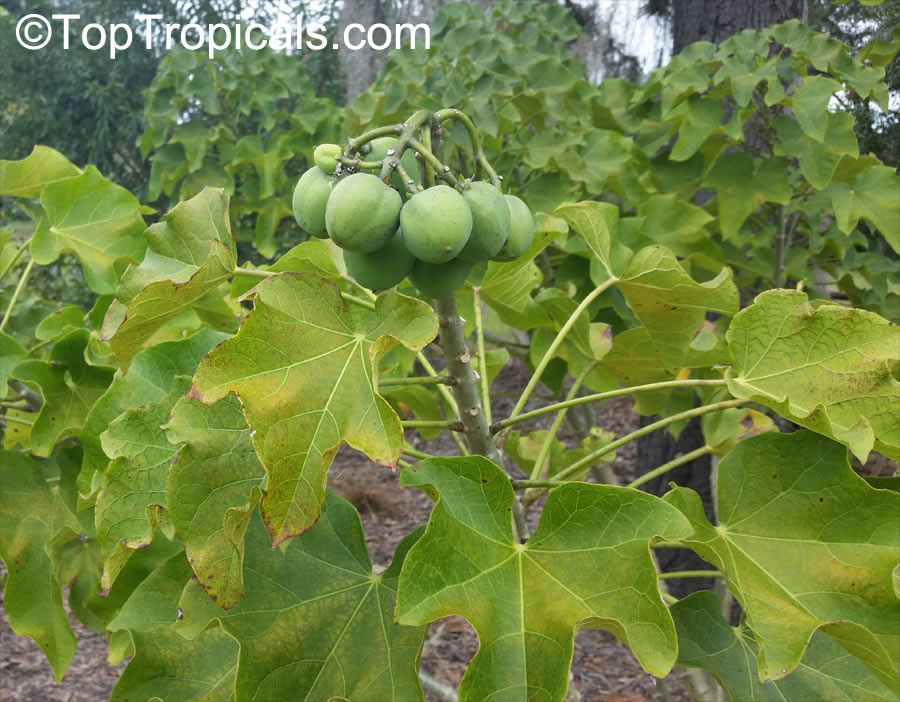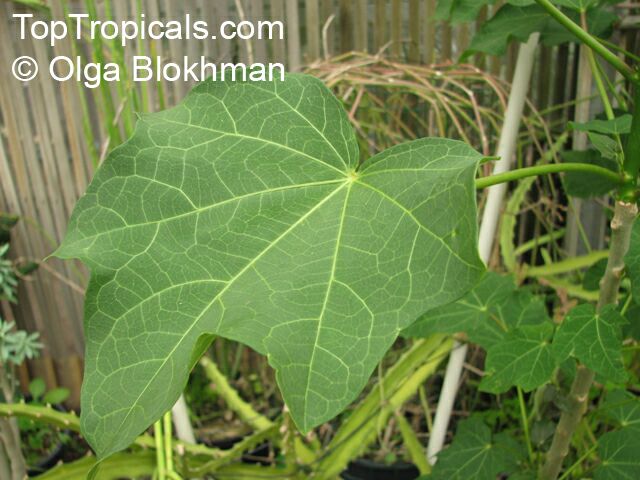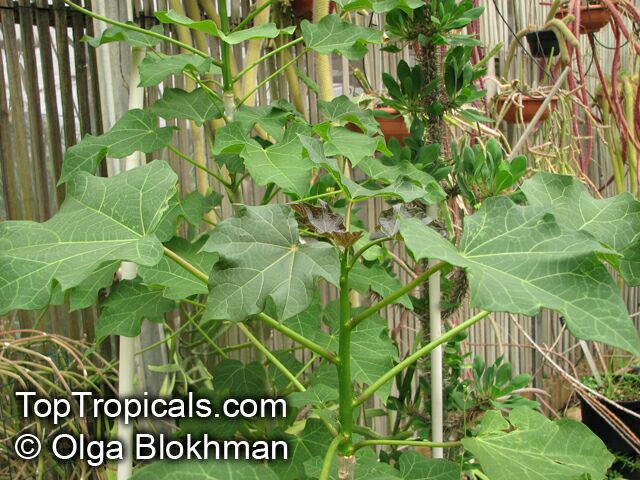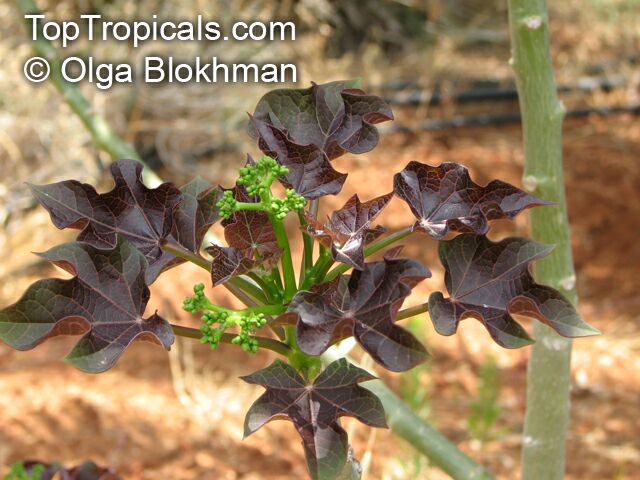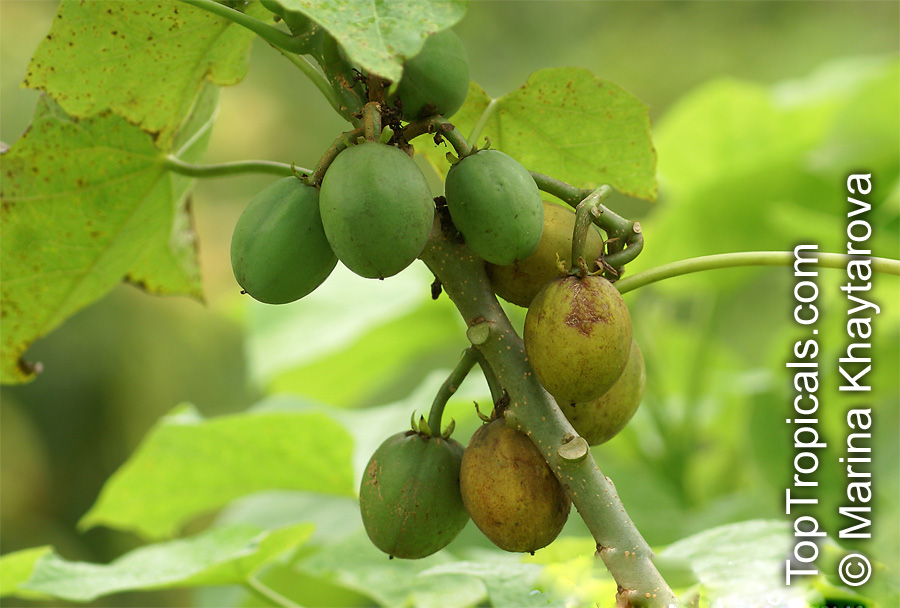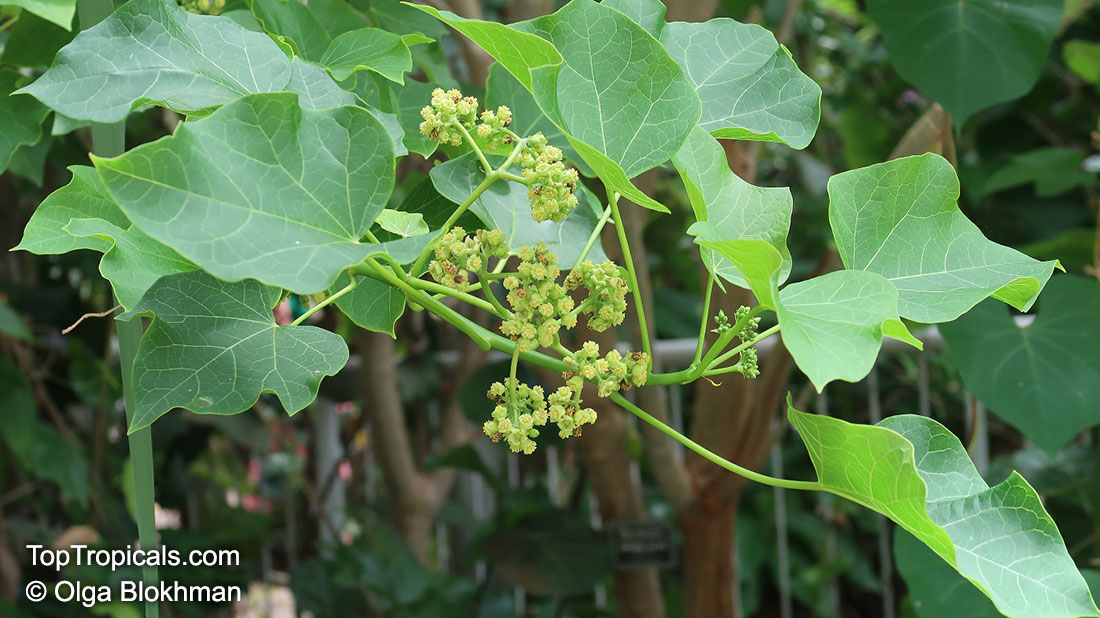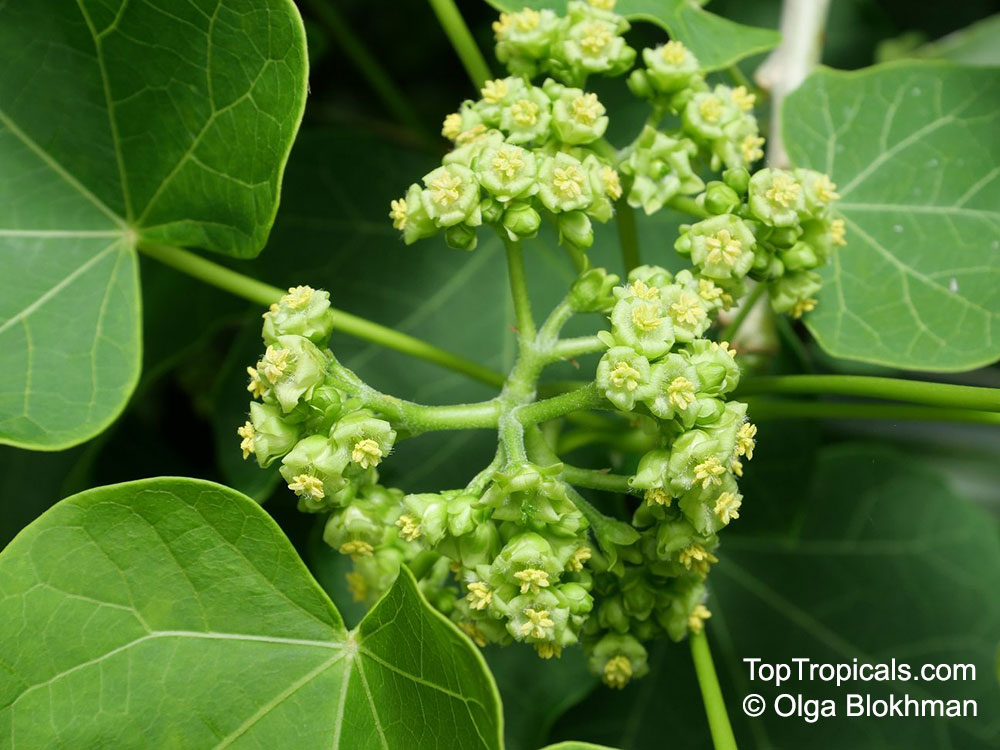Jatropha curcas (Physic Nut)
Botanical name: Jatropha curcas
Common names: Physic Nut, Purging Nut
Family: Euphorbiaceae
Origin: South America









Jatropha curcas (Physic Nut) is a shrub, growing to heights up to 10 feet tall. It is a deciduous plant which is native to South America and is now cultivated in tropical and subtropical regions of the world. The leaves are green and the flowers are white to off-white in color. The plant is valued for its ornamental foliage and pleasing contrast.
Medicinal and ethnomedical uses of Jatropha curcas have been known for a long time, chiefly for its extremely toxic seeds and fruits. The plant has also been used for its oil, primarily for making candles and soap. Furthermore, the oil has industrial purposes and is now used as a feedstock for producing biodiesel. Jatropha curcas can be grown in USDA hardiness zones 9-11 in full sun or partial shade. It needs moderate water during its growing season and prefers well-drained soils. However, it is drought tolerant and can tolerate periods of drought and heat.
When grown in pots, Jatropha curcas can - with proper care - tolerate cold temperatures down to the 30s F for a short period of time. It should be moved indoors, to a bright area, when temperatures drop to freezing. During winter, the plant should be watered once every two weeks. In the spring, when the plant starts growing, more frequent watering is preferred and fertilizer can be added every once in a while to promote growth and blooming. Deadheading of flowers is also helpful as it encourages more blooming. During hot summer months, the plant should be protected from direct sunlight and hot winds.
